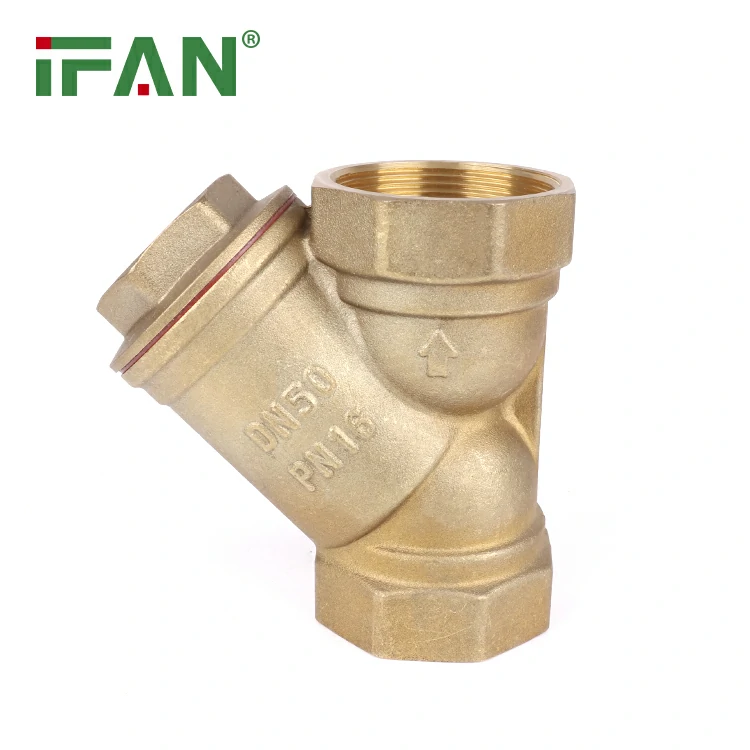Introduction to Brass and Plastic Filter Valves
Filter valves are essential for controlling flow and filtering debris.
Two common types are brass and plastic filter valves.
Each material offers unique advantages depending on the application.
Brass filter valves are known for strength and corrosion resistance.
Plastic valves are lighter and often less expensive.
Choosing the right type depends on the system’s needs and environment.
This article compares both to help you make an informed decision.
We will look at durability, cost, safety, and long-term performance.
Durability and Strength Comparison
Brass filter valves are made from a strong metal alloy.
They resist pressure, temperature changes, and mechanical impact.
Plastic valves are lighter but more prone to cracking under stress.
Brass can handle higher pressures without deforming or leaking.
For example, in high-pressure industrial lines, brass lasts longer.
Plastic may degrade faster under heat or constant pressure.
In outdoor use, UV rays can weaken some plastic types.
If durability is key, brass filter valves are generally better.
Resistance to Corrosion and Chemicals
Brass filter valves are naturally resistant to rust and mineral buildup.
They perform well in water systems with varying pH levels.
Plastic valves resist many harsh chemicals, especially in lab settings.
In seawater or acidic environments, plastic may perform better.
However, brass does not break down as easily under mechanical wear.
For instance, in hard water areas, brass is less likely to scale up.
Chemical compatibility charts can guide material selection.
The choice depends on the fluid’s nature and system exposure.
Installation and Maintenance Needs
Brass filter valves are slightly heavier and often require tools to install.
They offer strong threads and fittings for secure connections.
Plastic valves are easy to handle, cut, and join without tools.
This makes them popular for DIY plumbing or temporary systems.
Brass holds up better under frequent use or mechanical stress.
For example, in a workshop, brass valves survive rougher treatment.
Maintenance is simple for both: clean the screen and check seals.
However, brass filter valves tend to require less frequent replacement.

Cost and Affordability Factors
Plastic filter valves are usually cheaper upfront than brass versions.
They are a cost-effective choice for small or low-pressure systems.
Brass filter valve costs more but last significantly longer.
Over time, brass may reduce costs related to failure or replacement.
For example, a farm irrigation line might use plastic to cut costs.
But if valves break often, the long-term cost increases.
When evaluating price, consider both purchase and lifespan.
Sometimes, spending more now saves money later.
Safety and Environmental Impact
Brass filter valves are strong and less likely to fail suddenly.
This adds a layer of safety in pressure-sensitive systems.
Plastic valves can release harmful chemicals if they degrade or burn.
Some plastics may leach substances into drinking water if not rated.
Brass is recyclable and has a long environmental lifecycle.
Plastic is harder to recycle and often ends in landfills.
For eco-conscious users, brass may be the more sustainable option.
Always choose certified, safe materials for potable water systems.
Application-Specific Examples
Brass filter valve is ideal for plumbing, heating, and heavy-duty systems.
They are common in homes, factories, and irrigation setups.
Plastic valves work well in gardening, low-cost tanks, or light-duty uses.
For example, a hydroponic setup might favor plastic for simplicity.
In contrast, a home’s main water line would benefit from brass.
Industrial plants prefer brass for its reliability and pressure tolerance.
If the system involves chemicals or low risk, plastic can suffice.
Choosing based on application ensures both safety and efficiency.
Conclusion: Which One Is Better?
Both brass and plastic filter valves serve useful purposes.
Brass filter valves offer better strength, durability, and long-term value.
They are ideal for high-pressure, demanding, or long-term systems.
Plastic valves are lightweight, low-cost, and easier to install.
They are useful in low-pressure or temporary applications.
Consider the environment, fluid type, and maintenance expectations.
When reliability matters most, brass filter valve is the better option.
Make the choice that best matches your system’s unique needs.

